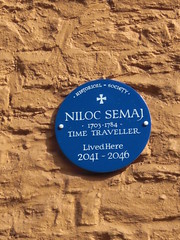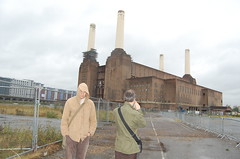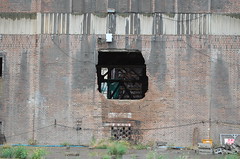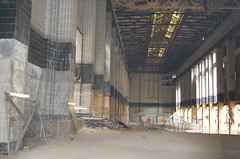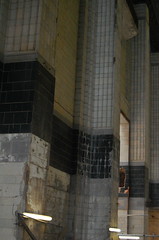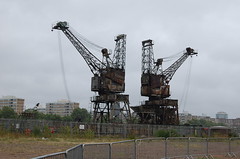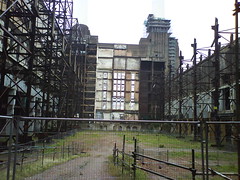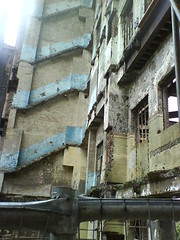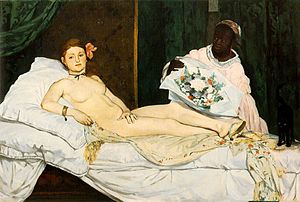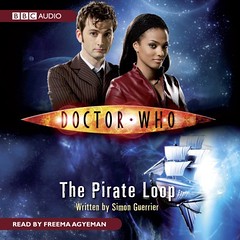This one seems to have fewer actual exhibits, or at least no single artefacts that are quite so huge. But the interpretation is very good indeed. Whereas the First Emperor failed to ask – or diplomatically body-swerved – awkward questions about the megalomania of the subject, the (lack of) legacy and more bothersome aspects, Hadrian seems all about the tricky stuff.
A sizeable chunk is devoted to what the Roman's did for us: we seem to have inherited their wars, their economics and their architecture. Models and images of the Pantheon in Rome sat beneath the dome of the museum's Reading Room, making that inheritance plain.
It's also good on the economics, explaining how the Empire needed to expand to continue supplying the hungry city at its centre. Trade and war, and the state of the Empire as a whole, were in large part influenced by its over-dependence on oil (in Roman times, olive oil). As the Empire over-stretched itself, became dependent on all the fingers it had in foreign pies, the whole thing starts to unravel. It's (intentionally) very easy to see the links between the maps and politics of Hadrian's day and our own, and maybe even fore-taste our own decline.
The unnerving similarity of the maps of disputed borders and trouble spots then with those in our papers today suggests that nothing's changed in the last 2,000 years. One group of fellow visitors seemed to take this as reason just to shrug our shoulders at the Middle East. But what it really underlines is how the modern borders of a lot of these countries were decided by classical scholars who acted as if time had stood still.
But it's not all about what we owe the Romans. I was pleasantly surprised by the emphasis on global context.
“The Roman Empire did not exist in isolation. The Satavahana in India and the Eastern Han in China were both powerful empires of similar importance. Rome had links with both of them. At Rome's eastern border, in modern-day Iran and Iraq, was the Parthian Empire.”
Caption in the British Museum's Hadrian exhibition.
It was also good exploring the historiography, how we know anything about Hadrian, explaining the scant and bitty sources and the biases of those that wrote them. While the First Emperor presented a totality of story, Hadrian sign-posts the gaps, explicitly acknowledging that our knowledge is built up from fragments.Picked up plenty of top facts as I nosed round. Such as that a clanking bit of dialogue from The Twin Dilemma, “May my bones rot”, seems to derive from a Jewish curse on Hadrian after the suppression of the revolt in Jerusalem.
The exhibition's family guide entirely neglects to mention Antinous – apart from his name being on the floor plan. The Dr suggested this isn't really an exhibition for kids anyway, but it also seems a bit timid for the notes to ignore such a major part of the show. Antinous was Hadrian's pretty Greek lover, and appears in all sorts of costumes and hairstyles.
The information panels explain the different attitudes to sex in Roman times – the general wheeze seeming to be that a respectable fellow would not a) shag married women and b) get shagged himself. But there's also lots on the court politics and intrigues of the Emperor having such a pretty favourite. And I found the aftermath of Antinous's death fascinating, too. (He threw himself / fell / got shoved into the Nile on a boat trip.)
“The Antinous Cult
Literary sources tell us that Hadrian was profoundly affected by Antinous's death and mourned him with unusual intensity. While Hadrian did not pass any official decree ordering Antinous's deification, he gave encouragement to those who wanted to make Antinous the object of a new cult. Shortly after his lover's death, Hadrian founded a new city on the banks of the Nile and named it Antinoopolis. He built a large temple and set up festival in Antinous's memory. Other Greek cities began to establish their own cults and festivals in honour of Antinous, led by local and senatorial leaders, who wished to express their loyalty to Rome and to Hadrian. The cult became popular among the common people where it seems to have competed with Christianity.”
Ibid.
NB the assumptions in that, the the political, pragmatic reasons for a religion flourishing. It was not unusual for an ordinary mortal to find themselves deified, and their ordinariness quickly appeals to the masses. For all the talk of loyalty to Rome, surely Antonius's appeal to the Greek cities who worshipped him was his having been Greek.So you've got some ordinary, non-Roman geezer turned into a God because it serves a useful purpose to the politicking of the day. It happened to be the Emperor's dead gay lover, but it might just as well have been anyone.

